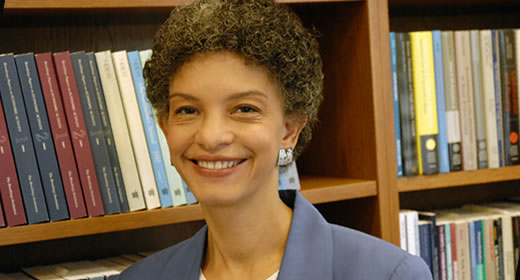
A new year begins, and I write with the warmest wishes that 2014 will bring health, peace, and prosperity to you and yours, and to the many wonderful communities you serve. For the Ford School, 2014 is a very special year: our centennial anniversary (Adobe PDF).
It’s hard to believe that the University of Michigan’s first forays into policy education began 100 years ago this year, but they did. To be clear, they began humbly. In 1914, our focus was local, municipal government leadership, and our classes were small, just one to two students each year. Over the years, though, our size and focus grew, much as our nation did. We began to train students for state-level leadership, and national governance; we prepared them to serve and lead the growing number of non-governmental organizations making up American civil society and to serve national and multinational organizations, as well.
Today, our students and faculty and alumni do all these things, as you’ll see in this issue of ‘the feed.’
At the local level, we feature Eunice Burns (MPA ’70), who has been active in Ann Arbor civic life for more than five decades, and new research released by our Center for Local, State, and Urban Policy (CLOSUP) about local leaders’ increased use of “placemaking” as an economic development tool.
At the state level, we feature the testimony of Ford School students who joined the debate on a new Michigan House Bill that would permit equity crowdfunding (investments of up to $10,000 in a Michigan business in exchange for equity in the business) to spur economic development in the state. The students had investigated the issue for the Ford School’s Applied Policy Seminar, now called Strategic Public Policy Consulting or SPPC, taught by Professor Elisabeth Gerber, which connects student teams with commissioned policy research assignments for government and non-profit clients.
At the national level, we marked the 50th anniversary of President Lyndon B. Johnson’s declaration of “unconditional War on Poverty,” with a major event in Washington, DC investigating why poverty remains such a pressing national problem, and what can be done to lift more Americans out of poverty. The event focused on research highlighted in a new book, Legacies of the War on Poverty, co-edited by the Ford School’s Sheldon Danziger, who is now serving as president of the Russell Sage Foundation. Commentators from across the political spectrum addressed the poverty interventions that grew out of the War on Poverty, and discussed policies and strategies that can be used going forward to combat poverty and promote opportunity.
And internationally, we share new research by Robert Axelrod and postdoctoral research fellow Rumen Iliev that helps to predict and prevent cyberterrorist attacks; and we discuss Hybrid Justice, a new book by John Ciorciari that critiques the effectiveness of the UN-backed hybrid tribunal that investigated the human rights atrocities of the Khmer Rouge.
As always, we recognize the great overlap between local issues and state ones, between state issues and national ones, between national issues and international ones. Increasingly, these divisions seem immaterial. Many students wish to work abroad, pursuing economic development activities in developing nations, only to find themselves working hand-in-hand with local government officials and community leaders. Others see themselves working at the state level, but quickly realize how much of their work is contingent on federal legislative action. This is why the Ford School’s approach to policy training, which exposes students to the entire spectrum of policy challenges, actors, and interventions, continues to work so well.
These days, we often find ourselves exploring policy challenges through a bioregional lens, as well. Take, for example, the Integrated Policy Exercise our students just completed. This year's IPE focused on Great Lakes water issues, which cross so many jurisdictions: township, city, county, state, and national.
Enjoy these stories and others inside this issue of ‘the feed’. And share your own stories, particularly as we enter our centennial year. I look forward to connecting and reconnecting with you all.
Sincerely,
Susan M. Collins
Joan and Sanford Weill Dean of Public Policy